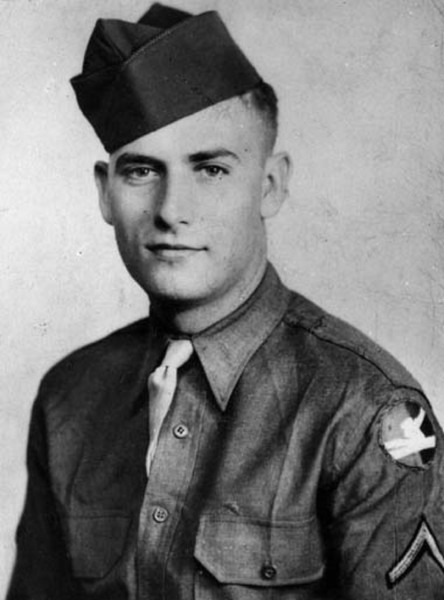

On this day 75 years ago during World War II, Army medic Pvt. William D. McGee made the ultimate sacrifice to save his fellow soldiers.
On March 18, 1945, American soldiers with the 304th Infantry Regiment, 76th Infantry Division prepared to capture the German town of Mülheim.
At night, they crossed the Moselle River by boat, but as they reached the shore, the advancing soldiers discovered that the retreating German forces had mined the area. As the first wave pushed forward, two men were grievously injured by enemy anti-personnel mines.
Caught in a minefield between a river and an enemy-occupied town, they were left bleeding, in pain, and trapped. Despite the risk, McGee went forward alone to get them.
“Entirely on his own initiative, Pvt. McGee entered the minefield, brought out one of the injured to comparative safety, and had returned to rescue the second victim when he stepped on a mine and was severely wounded in the resulting explosion,” reads McGee’s Medal of Honor citation.
Mortally wounded, McGee demanded that his fellow soldiers not come to his aid, knowing that their attempts to reach him would result in the same fate.
“Although suffering intensely and bleeding profusely, he shouted orders that none of his comrades was to risk his life by entering the death-sown field to render first aid that might have saved his life,” continues the award citation.
McGee’s decision undoubtedly saved lives, even as it cost him his own.
In recognition of his selfless sacrifice, McGee was posthumously awarded the Medal of Honor, the nation’s highest award for valor, on Feb. 26, 1946.
Born in Indianapolis, Indiana, McGee enlisted in the Army on Dec. 11, 1942, after which he completed basic training Camp Howze, and received training as a medic at Camp Bowie in Texas, before shipping off to England in February 1944, according to Together We Served.
Following his death, his Medal of Honor was presented to his wife in Indianapolis. McGee is interned at Luxembourg American Cemetery in Germany.
Read McGee’s full Medal of Honor citation below:
A medical aid man, he made a night crossing of the Moselle River with troops endeavoring to capture the town of Mulheim. The enemy had retreated in the sector where the assault boats landed, but had left the shore heavily strewn with anti-personnel mines. Two men of the first wave attempting to work their way forward detonated mines which wounded them seriously, leaving them bleeding and in great pain beyond the reach of their comrades.
Entirely on his own initiative, Pvt. McGee entered the minefield, brought out one of the injured to comparative safety, and had returned to rescue the second victim when he stepped on a mine and was severely wounded in the resulting explosion. Although suffering intensely and bleeding profusely, he shouted orders that none of his comrades was to risk his life by entering the death-sown field to render first aid that might have saved his life.
In making the supreme sacrifice, Pvt. [McGee] demonstrated a concern for the well-being of his fellow soldiers that transcended all considerations for his own safety and a gallantry in keeping with the highest traditions of the military service.
